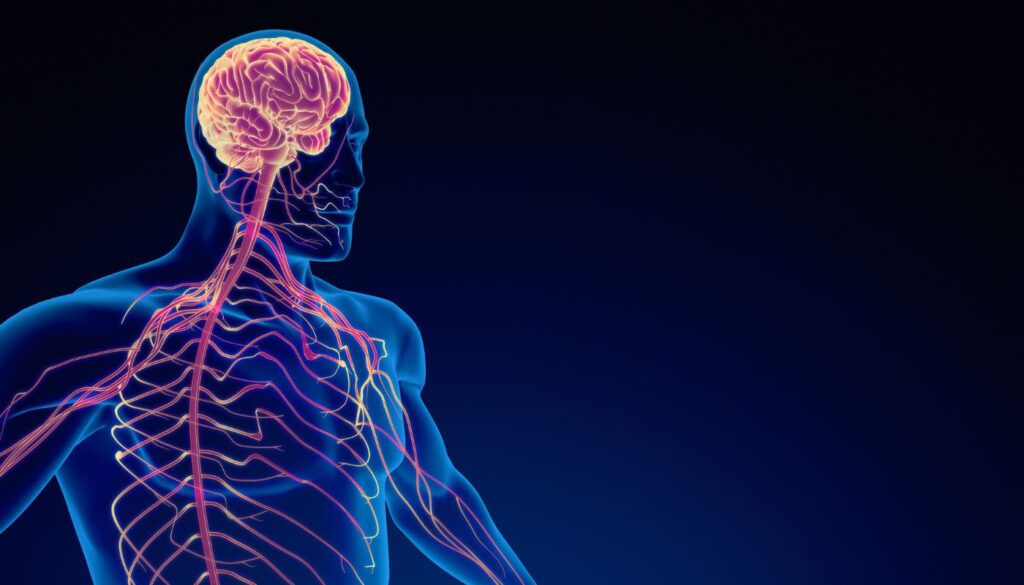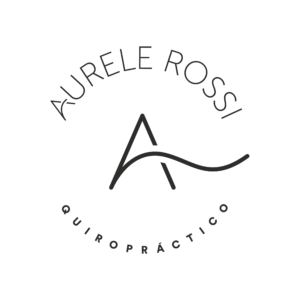
Footwear and Back Pain: The Importance of Wearing the Right Footwear
The Relationship Between Footwear and Back Pain Did you know that the type of footwear you wear can have a significant impact on your
Tel. : 662097657 / 931527281





The human body is an incredibly complex and fascinating machine. One of the most crucial parts of this machine is the peripheral nervous system. Did you know that this system is responsible for carrying information from the brain and spinal cord to the rest of the body? In this article, we will explore in depth the peripheral nervous system, how it works and why it is so vital to our health. Get ready to discover everything you ever wanted to know about this essential system.
The peripheral nervous system (PNS) is a network of nerves that extends throughout the body, connecting the central nervous system (brain and spinal cord) to muscles, organs, and skin. This network is essential for coordinating and controlling our actions, from voluntary movements to automatic functions such as breathing and digestion.
The peripheral nervous system is divided into two main parts:
1. Somatic Nervous System: This controls voluntary movements and the transmission of sensory information to the central nervous system. For example, when you touch a hot surface and quickly remove your hand, the somatic nervous system is acting.
2. Autonomous Nervous System: This regulates the body's involuntary functions, such as heart rate, digestion and breathing. It is further subdivided into:
– Sympathetic Nervous System: Prepares the body for stress or emergency situations.
– Parasympathetic Nervous System: Conserves and restores energy, promoting rest and digestion functions.
The peripheral nervous system performs multiple vital functions. Some of the most important ones include:
The PNS transmits sensory information from the body's receptors to the central nervous system. This includes sensations of touch, pain, temperature, and body position. Thanks to this function, we can perceive and react to our environment appropriately.
Peripheral nerves carry signals from the brain and spinal cord to skeletal muscles, allowing conscious movements such as walking, running, and writing. Without the peripheral nervous system, we would not be able to perform these actions.
The autonomic nervous system, a part of the PNS, regulates automatic functions that we do not consciously control, such as heart rate, blood pressure, and digestion. These functions are essential to maintain homeostasis and balance in the body.
The peripheral nervous system can be affected by various diseases and disorders. Some of the most common include:
Peripheral neuropathy is a disorder that occurs when peripheral nerves are damaged. This can cause weakness, numbness, and pain, usually in the hands and feet. Causes may include diabetes, infections, traumatic injuries, and exposure to toxins.
This is an autoimmune disorder in which the immune system attacks the peripheral nerves. Symptoms can include muscle weakness, numbness, and, in severe cases, paralysis. Although the exact cause is unknown, it often occurs after a viral or bacterial infection.
Diabetic neuropathy is a common complication of diabetes, resulting from damage to peripheral nerves due to high blood sugar levels. Symptoms can range from numbness and pain in the extremities to digestive and cardiovascular problems.
Maintaining the health of the peripheral nervous system is crucial for an active and healthy life. Here are some strategies to prevent and treat PNS disorders:
Adopting a healthy lifestyle can help prevent many peripheral nervous system problems. This includes a balanced diet, regular exercise and avoiding alcohol and tobacco. Maintaining good control of chronic diseases such as diabetes is also essential.
In cases of severe disorders, medical treatments may include medications, physical therapy, and even surgery. It is important to consult a healthcare professional for an accurate diagnosis and appropriate treatment plan.
Chiropractic care can be beneficial in maintaining the health of the peripheral nervous system. Chiropractors specialize in the detection, correction and prevention of alterations of the neuro-musculoskeletal system, especially imbalances of the spine that affect the functioning of the nervous system, the body and health in general.
The peripheral nervous system is a fundamental part of the human body, essential for the transmission of sensory and motor signals, as well as for the regulation of involuntary functions. Understanding how this system works and how to keep it healthy is crucial to overall well-being. If you are experiencing symptoms of nerve problems, it is important to seek the right professional.

We encourage you to take care of yourself from now on, without waiting until you feel sick or have various symptoms.
These are some of the answers we hope to answer your questions about chiropractic, for more information visit our FAQ
Yes very sure. The Chiropractic adjustment acts on the nervous system, in order to allow the body's own recovery capacity to function normally.
Millions of people of all ages and with different problems go to the chiropractor, which has negative impacts.
Because? Chiropractic has an excellent safety record, avoiding invasive procedures.
Several studies have demonstrated that chiropractic care is 250 times safer than anti-inflammatories medical treatment.
The goal of chiropractic is to promote better body functionality.
The Central Nervous System regulates every cell of our body.
Chiropractic focuses on correcting the vertebral subluxations and interferences generated on the vertebrae and avoiding correct body functioning.
The vast majority of its users feel better, recover faster and minimize the use of medications and surgeries.
Many people who enjoy chiropractic care feel less stress, have more vitality and live better daily.
No, it isn't. Chiropractic is a sanitary profession complementary to and different from medicine (according to WHO).
It is studied in specialized chiropractic universities. The chiropractic professional receives a minimum training of 5 years that guarantees the quality and safety of the service it offers.
During the chiropractic university career, you don't study surgery or pharmacy but deeper physiology, anatomy, radiology, neurology, and specific manual chiropractic techniques.
As this profession hasn't been approved yet in Spain, you must go to a "true" chiropractic.
Many people use this legacy to practice manipulations of the vertebral column without the correct studies and knowledge.
For this reason, it is essential that, if you are looking for a chiropractor, you check the web of Asociación Española de Quiropráctica, where you can find recognized professionals with studies.

EIXAMPLE
SANT ADRIÀ
RELATED POSTS

The Relationship Between Footwear and Back Pain Did you know that the type of footwear you wear can have a significant impact on your
Our patients





We offer you a special offer on your first visit to our chiropractic center.
Includes: